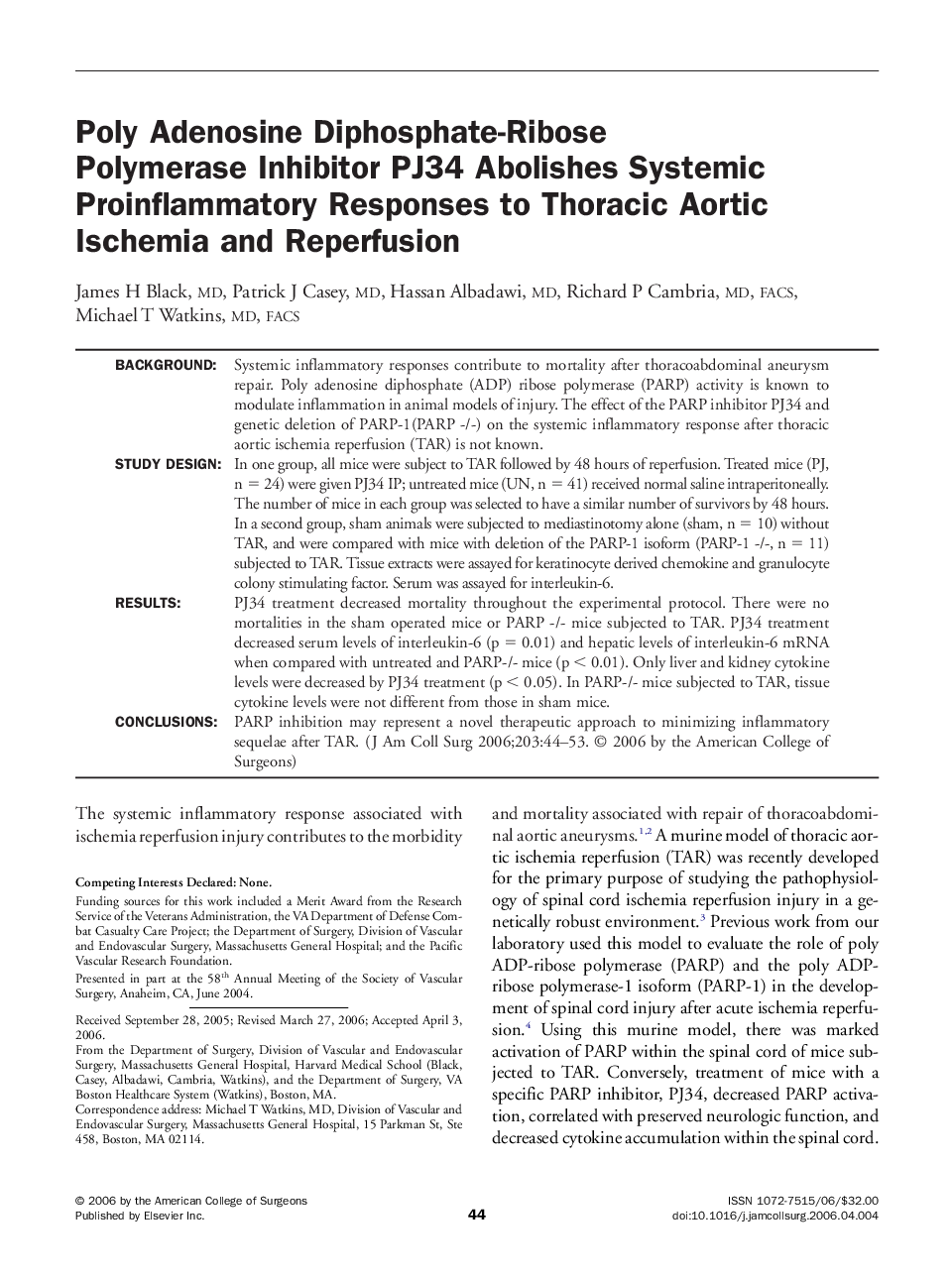| Article ID | Journal | Published Year | Pages | File Type |
|---|---|---|---|---|
| 4294437 | Journal of the American College of Surgeons | 2006 | 10 Pages |
BackgroundSystemic inflammatory responses contribute to mortality after thoracoabdominal aneurysm repair. Poly adenosine diphosphate (ADP) ribose polymerase (PARP) activity is known to modulate inflammation in animal models of injury. The effect of the PARP inhibitor PJ34 and genetic deletion of PARP-1(PARP -/-) on the systemic inflammatory response after thoracic aortic ischemia reperfusion (TAR) is not known.Study designIn one group, all mice were subject to TAR followed by 48 hours of reperfusion. Treated mice (PJ, n = 24) were given PJ34 IP; untreated mice (UN, n = 41) received normal saline intraperitoneally. The number of mice in each group was selected to have a similar number of survivors by 48 hours. In a second group, sham animals were subjected to mediastinotomy alone (sham, n = 10) without TAR, and were compared with mice with deletion of the PARP-1 isoform (PARP-1 -/-, n = 11) subjected to TAR. Tissue extracts were assayed for keratinocyte derived chemokine and granulocyte colony stimulating factor. Serum was assayed for interleukin-6.ResultsPJ34 treatment decreased mortality throughout the experimental protocol. There were no mortalities in the sham operated mice or PARP -/- mice subjected to TAR. PJ34 treatment decreased serum levels of interleukin-6 (p = 0.01) and hepatic levels of interleukin-6 mRNA when compared with untreated and PARP-/- mice (p < 0.01). Only liver and kidney cytokine levels were decreased by PJ34 treatment (p < 0.05). In PARP-/- mice subjected to TAR, tissue cytokine levels were not different from those in sham mice.ConclusionsPARP inhibition may represent a novel therapeutic approach to minimizing inflammatory sequelae after TAR.
